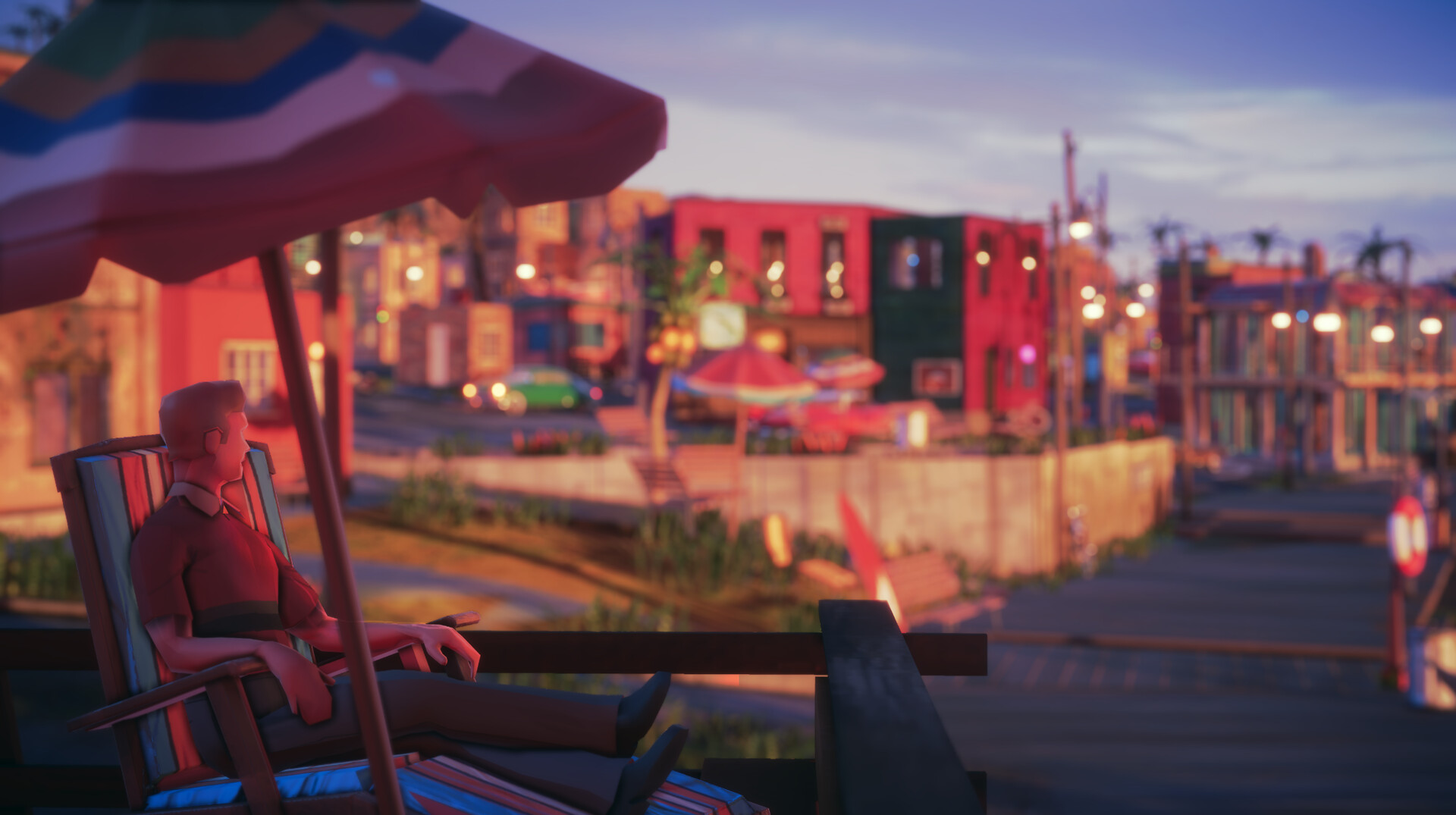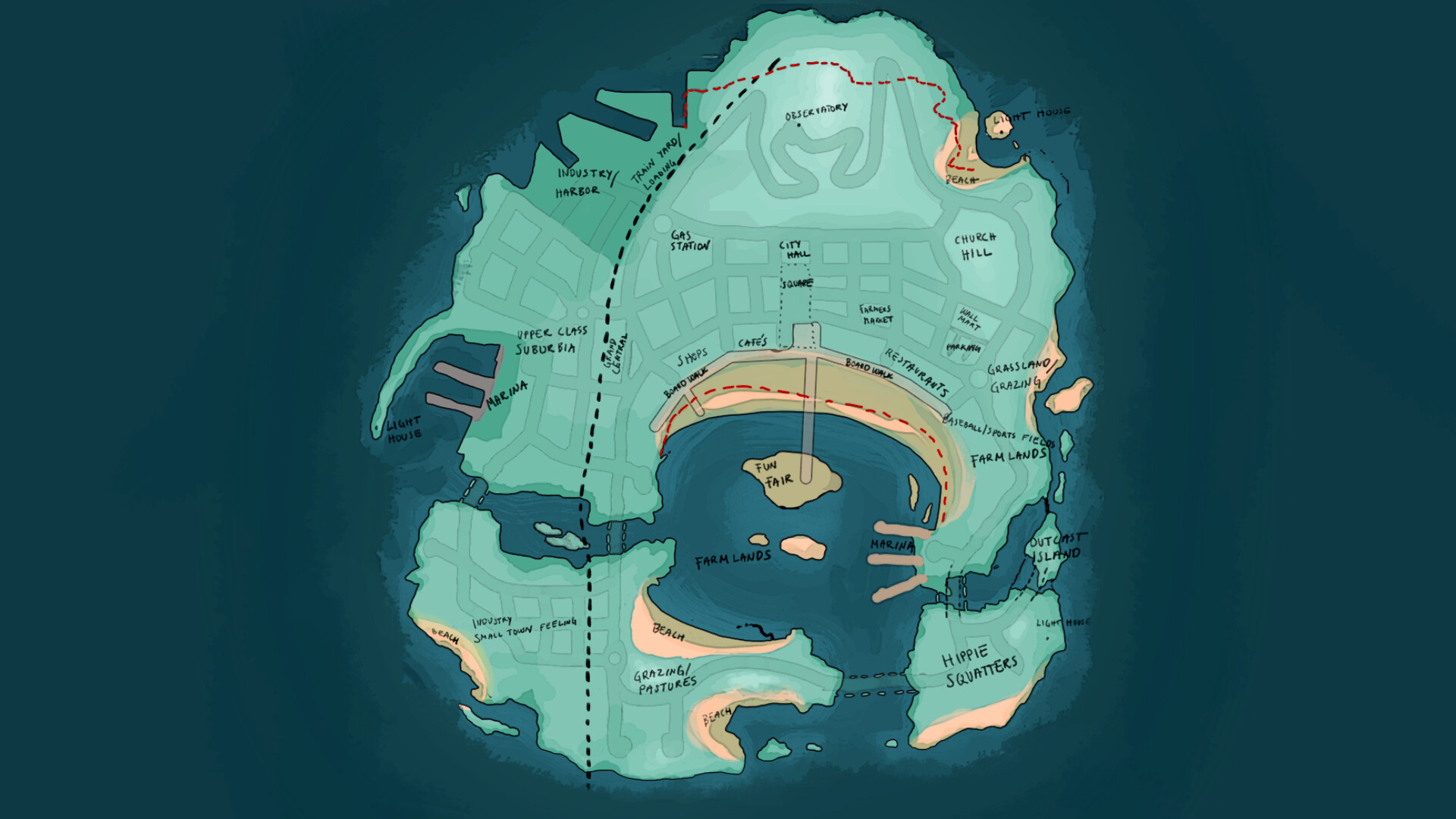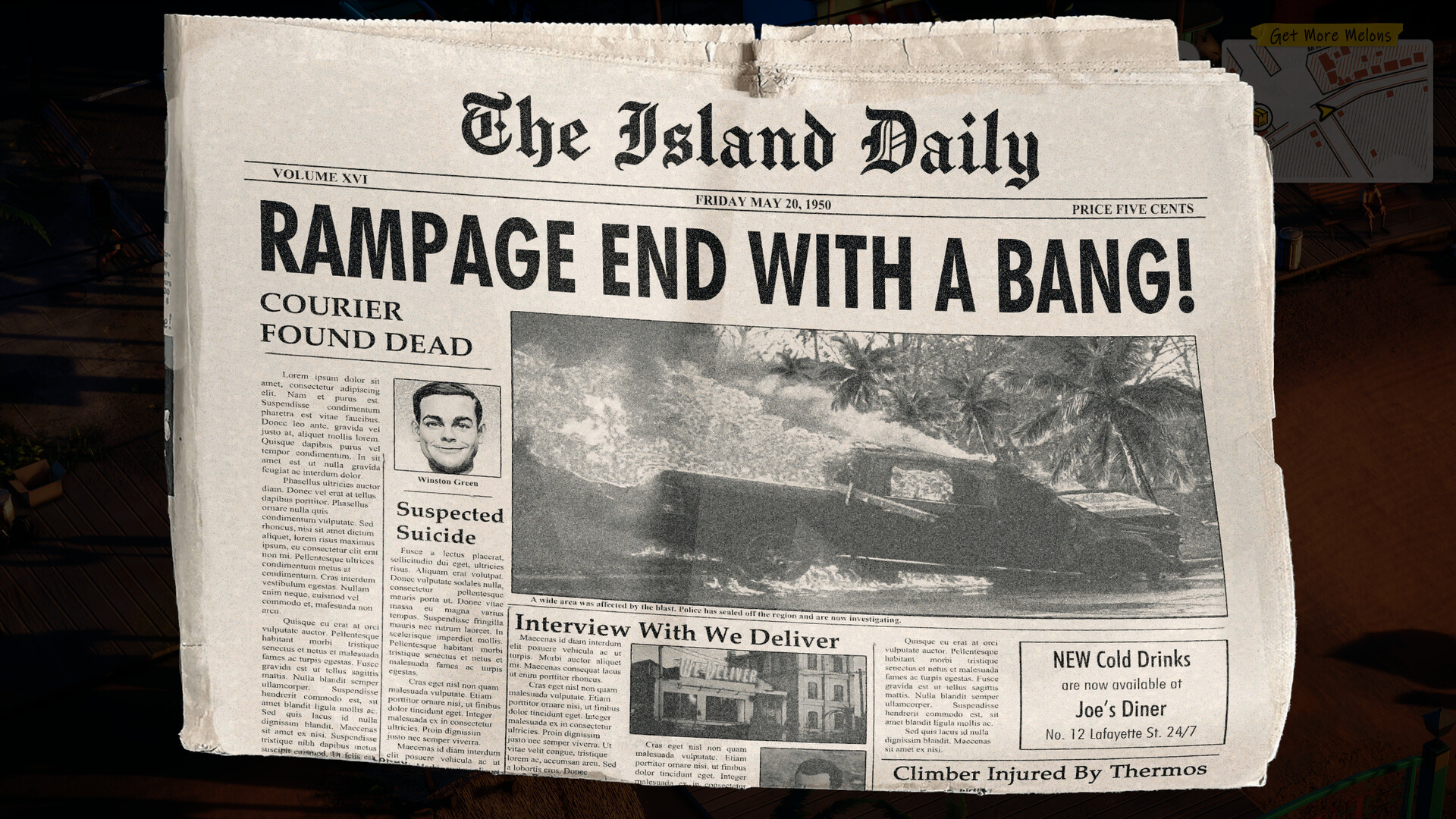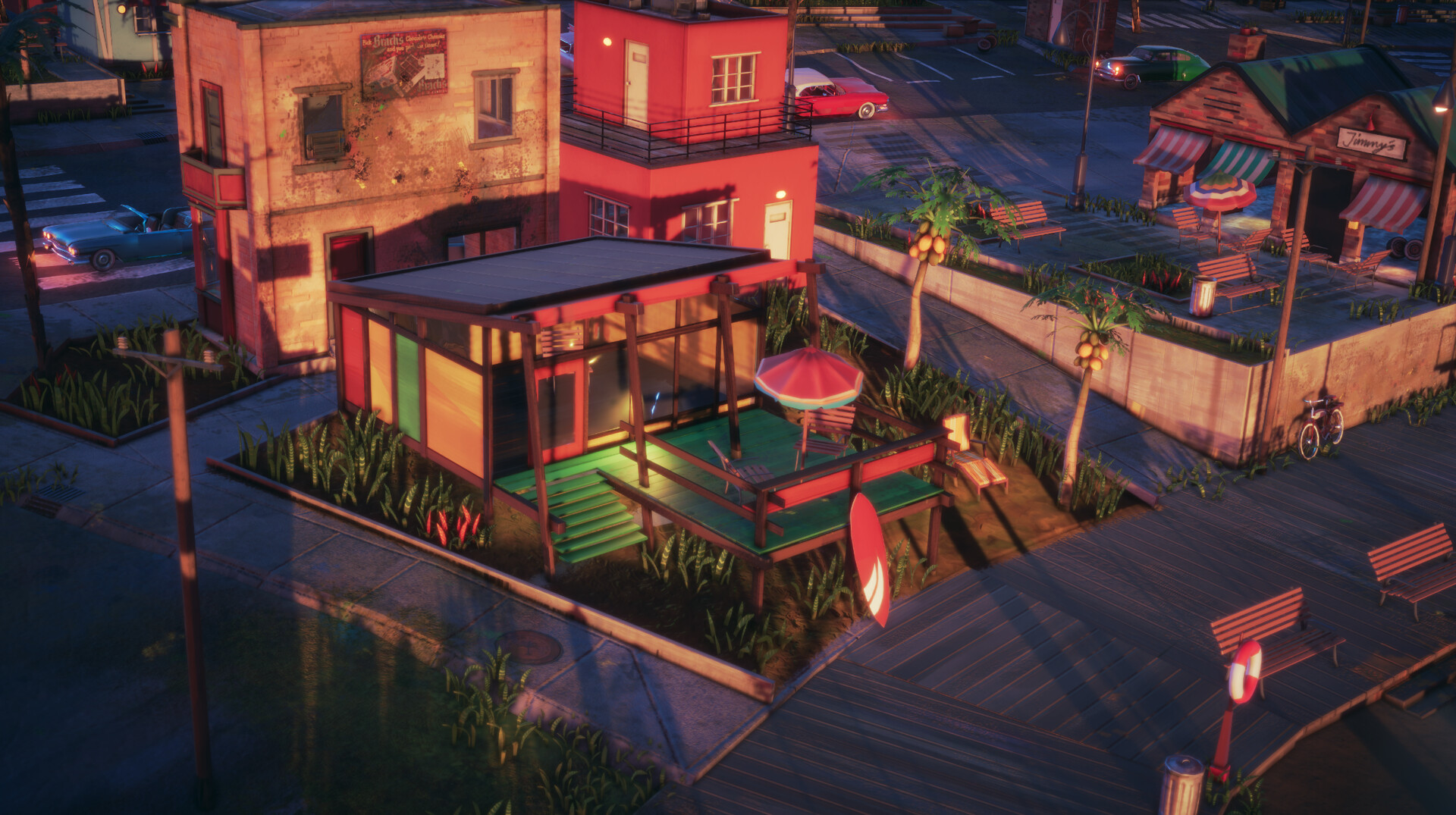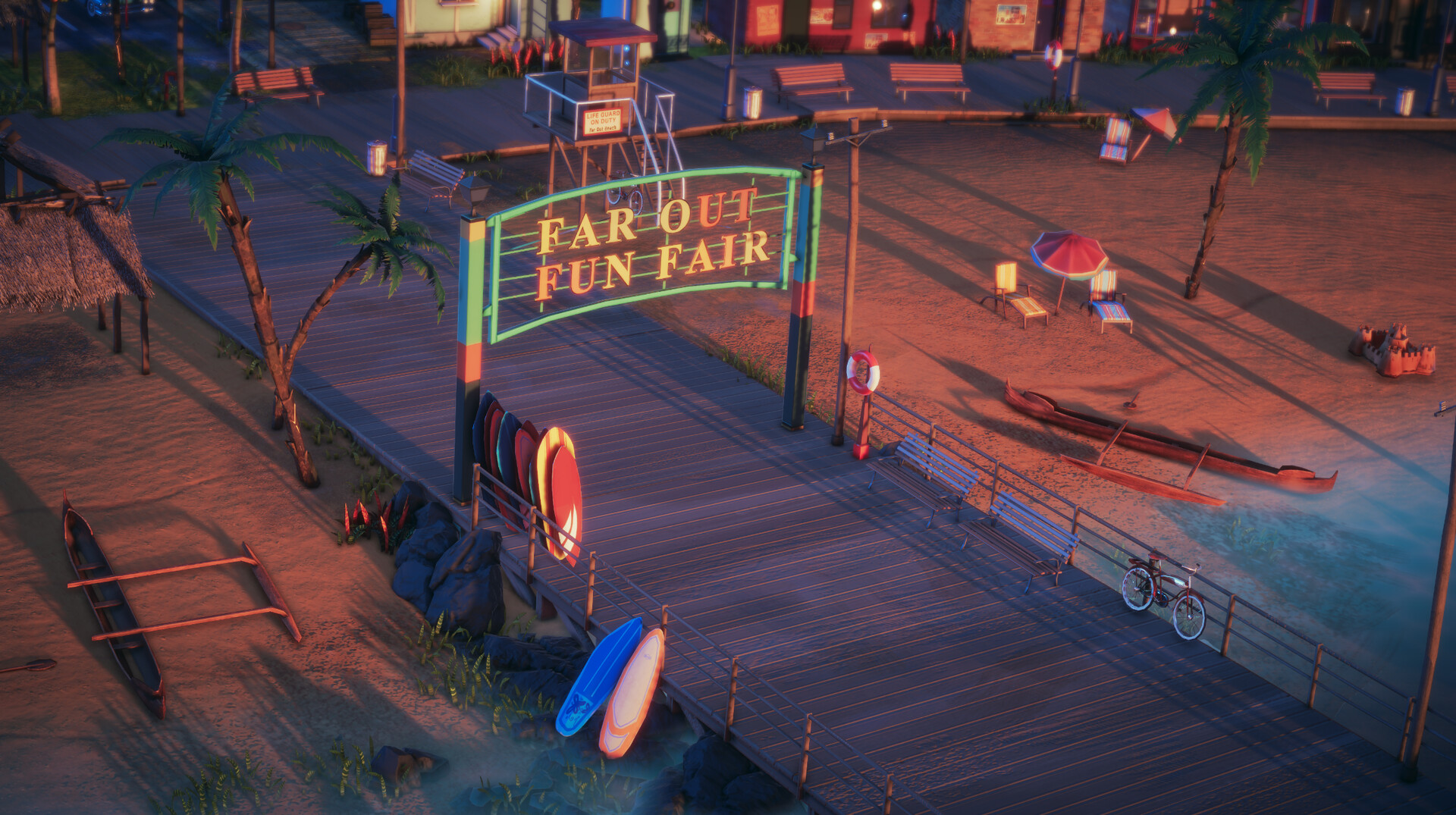Playtime:
502 minutes
This leans more toward "mixed feelings," and I’d argue the game’s structure is the enabler. People might not dwell on this as much, but we’re still starved for game-ass games. This could’ve been a strong step in that direction, were it to understood its own capacity and where it would situate itself.
Like many, I found the game didn’t quite match what I had in my mind for it but that’s alright. The first third was quite fun until it gradually decreased and the studio should have known better. Surprisingly, I ended up more invested in the story than I anticipated. The issue, however, is one common in modern media: it tries to do too much (also telling too much) and doesn’t execute any of it particularly well. On paper, it’s strange to label a physics-based destruction game as "story-rich," yet it genuinely fits.
The problem lies in how the narrative is structured. There’s a recurring mystery paired with a semi-satirical take on 1950s America, which works until the third act’s abrupt tonal shift. [SPOILER] The story essentially drops a time-travel device, stripping away much of the gravitas it had built earlier. We are taking revenge on somebody because... We are an borderline liar but there's also too much on stake? But we, the people who experience the story as it unfolds, don't know any shit about it, at all? Is Jack *whatever his surname is* even a good folk in the common sense? In a game that you can drive over people? Idk, though questions. Harald's death is never fully realized, there's a rather cheap twist with Bertha and the conflict with Donovan is not resolved, who am I to say anything when we don't have closure to any character other than -sort of- Norman. [/SPOILER]
The ending feels half-baked, leaving too many questions unanswered. Worse, this could’ve been avoided with better pacing and structure. I don’t understand why any creator would go for unsatisfying, sequel-bait endings over delivering a satisfactory resolution in a self-contained piece of work.
As for the gameplay, it’s fascinating that this started as a school project and that the team inked a deal to partner with Konami, of all people. The core idea is great, though I’ve often felt destruction-based games like Red Faction and Just Cause (despite it's not as much as the focus like it's here) miss the mark. That's often associated with me not getting the 'point' of those games. Here too the novelty wears off quickly, and the lack of structure actively hurts engagement though it does allow for quirky moments. That said, I never experienced a true "wow" moment that felt uniquely rewarding or unexpected. Regardless I just have that hunch that destruction games are better experienced when they are either true sandboxes without a much purpose other than challanges or they are a neat part of a game but is not the focus (e.g. Control).
The game introduces police only when the plot demands it; otherwise, you’re free to mow down pedestrians (they don’t die, don’t worry) and demolish anything and everything in sight. Besides your trailer because poor guy has nowhere else to sleep. Ludonarrative dissonance isn’t new, and I’d overlook it if the gameplay were fun enough to justify it but it really isn’t. At least not that much.
Yes, it’s impressive that 95% of the world is destructible, but why would I want to destroy it? The game touts varied destruction angles, but the felt experience doesn’t meaningfully change, it’s just… angles. The ideas are just mere ideas after all. When experienced, they might get reduced. There’s a lack of objectives or dynamic events to encourage exploration or experimentation. A classic "3-star" mission rating system (based on completion time, retries, etc.) might’ve helped, though it wouldn’t have drastically altered my overall verdict.
The driving is intentionally wacky, with loose handling which fits the tone. Some missions, like delivering watermelons without dropping too many or transporting a nuke that annihilates the town if you bump into anything (which is quite a juxtaposition to the game itself), play to this strength. But others, like the UFO photo hunt or toy car missions, feel out of place and tedious. The nuke mission, for instance, took me 30+ tries due to awkward camera angles and traffic, turning it into almost a rage bait. Luckily the developers were too generous with the checkpoints although it removes a portion of the tension I cannot think otherwise, it would have been a complete annoyance to go through.
The world looks beautiful, though its sections are tiny, loading times are fast nowadays, but frequent transitions still disrupt the flow. I wish it were a full open world, but the developers likely had reasons for their approach. I don't like the whole idea of having 250 cash crates scattered around the world so you can collect them and unlock upgrades either. It's probably the most aggravating way to unlock stuff that could potentially alter your gameplay experience for the better. I saw some people complaining there are no waypoints which is exactly not true. You do a lot of pathfinding in this game and there are no fast travel points, you'll be going from your bed to work after each and (almost?) every mission. You'll eventually memorize and get familiar with the town although it does indeed waypoints and it shows you the way with ''yellow direction signs'', it's a good way to hint the player where to go without making it too distant to how the game looks and plays.
Similar issues remained with other isometric games like Rustler or American Fugitive, but at least they gave players more freedom to engage with their worlds. It’s especially frustrating here because Far Out Games crafted such a dense, handcrafted, destructible world yet failed to fully leverage it in meaningful structure.
★ ★ ½ ☆ ☆ ☆
[url=https://steamcommunity.com/groups/theDeusExFox/curation] Please take a moment to check out my curator for more in-depth reviews [/url]
👍 : 16 |
😃 : 0






